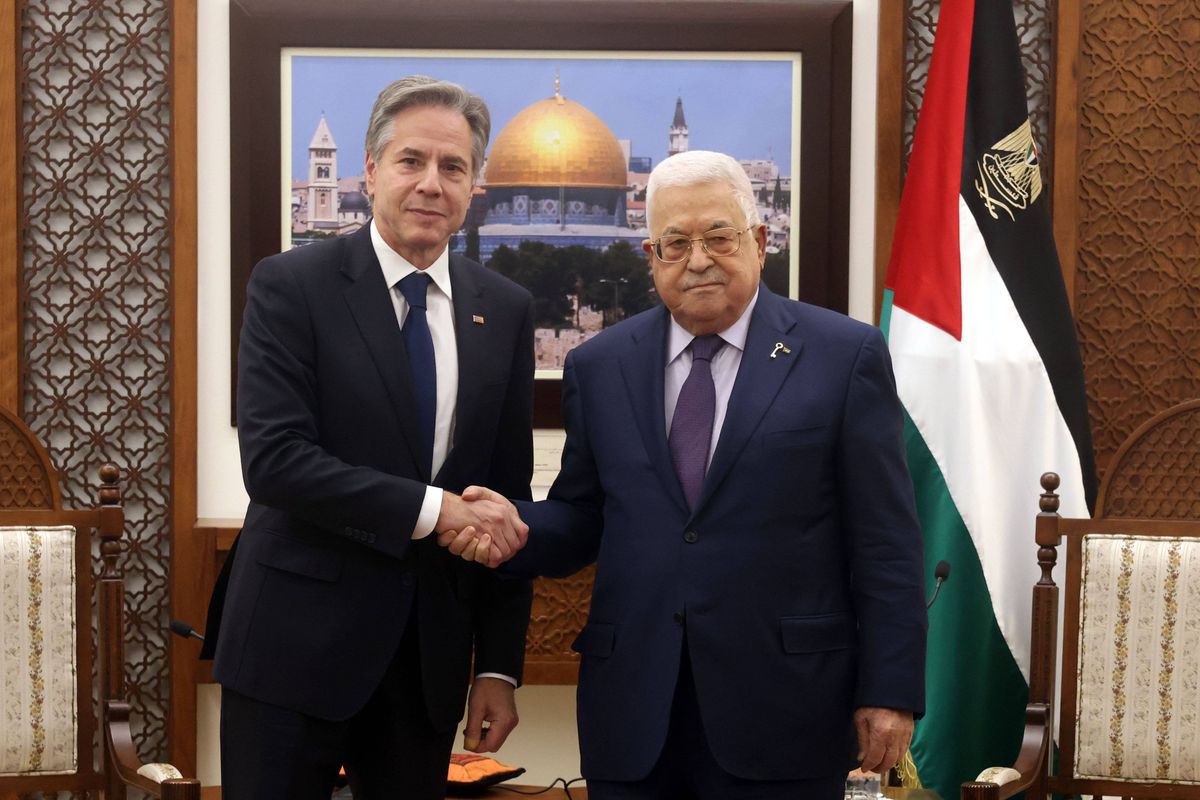A month in, and there’s no end in sight for the Israel-Hamas war. At least 1,400 Israeli civilians are dead, and 240 remain hostages, while some 9,500 Palestinians have been killed in Gaza. Protests around the world are calling for an end to the fighting, but there is no sign that a cease-fire is in the cards for either side.
On Saturday, foreign ministers from Qatar, Saudi Arabia, Egypt, Jordan, and the United Arab Emirates met US Secretary of State Antony Blinken in Amman, Jordan, asking that he convince Israel to halt its bombardments. Mahmoud Abbas, head of the Palestinian Authority, did the same when Blinken met with him on Sunday in the West Bank.
But after the meetings, Blinken said an Israeli cease-fire in Gaza would only allow Hamas to regroup and to carry out further attacks while noting that Israel needed to take "every possible measure" to prevent civilian casualties. On Sunday, Israeli Prime Minister Benjamin Netanyahu also declared that “there won't be a cease-fire without the return of our hostages … we'll simply carry on until we win.” The Israeli military, meanwhile, said late Sunday that it had reached the coast in the south of Gaza City, effectively splitting the city in two.
What would beating Hamas look like? That is the question for the Jewish state and its allies amid Israel’s ground offensive in Gaza. Attempts to root out a terrorist organization operating amongst a civilian population have entailed severe loss of life for the Palestinians – something Hamas’ leadership decries yet extols.
"Will we have to pay a price? Yes, and we are ready to pay it. We are called a nation of martyrs, and we are proud to sacrifice martyrs,” said Hamas official Ghazi Hamad in a recent interview.
Hamad claimed that everything Hamas did was “justified” and that they would continue until Israel was destroyed. Such statements make it politically and practically impossible for Netanyahu to back down – and make a peaceful resolution of the crisis even less likely. They also increase fears of a regional conflagration, involving Hezbollah and the possibility of a third Intifada in the West Bank, as Hamas appeals to Islamic extremist elements to join its fight.



















